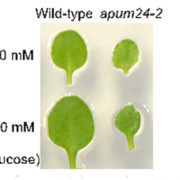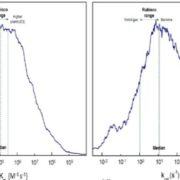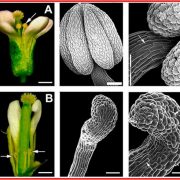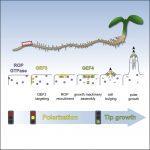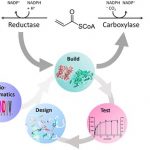A bacterium that demethylates opiate thebaine for a green chemistry solution ($) (Nature Sustainability)
 Opium poppies produce opiates including morphine and thebaine. Derivatives of these compounds can also have diverse beneficial properties. One of these, naloxone, is a competitive opioid receptor antagonist that can be administered to counteract the effects of opioid overdose. Because of the rise in opioid abuse and addiction (130 Americans die every day from an opioid overdose), naloxone has become widely available and is credited with saving countless lives. In an effort to improve its production, Augustin et al. identified a bacterium from an opium poppy processing waste-stream that is able to use thebaine as a sole carbon source. From this bacterium, they isolated an enzyme, morphinan N-demethylase (MND) that is able to efficiently N-demethylate morphine, thebaine and codeine, for production of naloxone. This study provides a greener and cheaper route to the production of opioid antagonists. (Summary by Mary Williams) Nature Sustainability 10.1038/s41893-019-0302-6
Opium poppies produce opiates including morphine and thebaine. Derivatives of these compounds can also have diverse beneficial properties. One of these, naloxone, is a competitive opioid receptor antagonist that can be administered to counteract the effects of opioid overdose. Because of the rise in opioid abuse and addiction (130 Americans die every day from an opioid overdose), naloxone has become widely available and is credited with saving countless lives. In an effort to improve its production, Augustin et al. identified a bacterium from an opium poppy processing waste-stream that is able to use thebaine as a sole carbon source. From this bacterium, they isolated an enzyme, morphinan N-demethylase (MND) that is able to efficiently N-demethylate morphine, thebaine and codeine, for production of naloxone. This study provides a greener and cheaper route to the production of opioid antagonists. (Summary by Mary Williams) Nature Sustainability 10.1038/s41893-019-0302-6



